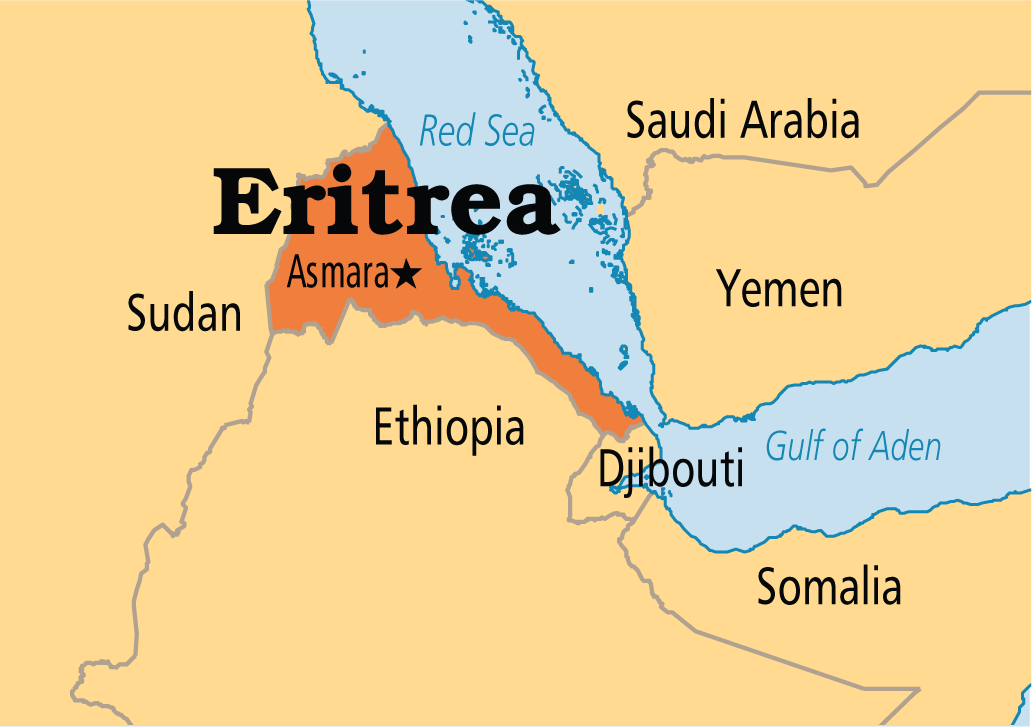Van Reisen: “UN-report on Eritrea was highly needed”
Torture, murder, slavery. Last week, Eritrea received unusual harsh criticism in a report by the UN Commission of Inquiry for this East-African country. Rightfully so, says Mirjam van Reisen, TiU-professor and expert on Eritrea.
The UN-report on the Eritrean regime is downright scathing. The bad reputation of dictator Isaias Afewerki is well-known. But never before has so much evidence been gathered and written down in a UN-report. The conclusion of that report is that Eritrea is guilty of widespread crimes against humanity, including slavery.
“This report is a serious measure”, says Mirjam van Reisen, professor International Relations, Innovation and Care at Tilburg University. For years she has been researching human trafficking and wrongdoings in Eritrea, together with colleague Conny Rijken. Van Reisen contributed to the UN report: “Research by Conny and me has been included in the report. I also spoke with Commission-member and special rapporteur Sheila B. Keetharuth.”
“It is very clear now which atrocities are taking place there.”
Playing hard
According to Van Reisen the report is vitally important to focus the attention on the horrible conditions in the East-African country. But it also feels like a personal victory. Recently, Van Reisen made headlines for being hindered by the regime while trying to do her job as an expert on Eritrea. Threats, intimidation and even a nightly chase, Van Reisen has experienced it all. She now has personal security. “The recognition for all my hard work and that of other Eritrea-researchers feels very rewarding. When you do research in this area, hardball is being played against you.”
Another thing Van Reisen is proud of: “We managed to reach international consensus on Eritrea. It is now absolutely clear which atrocities are taking place over there, there can no longer be any doubts about that.”

European support
Only one country does not support the report: Eritrea itself. The regime puts down the inquiry as ‘ridiculous’. Is it a lone voice in this regard? Not entirely, according to Van Reisen. “What worries me is that I have heard European diplomats who are downplaying the report. Naturally, that has everything to do with the millions of euros that the European Commission wants to hand out to the Eritrean regime to stem the migration from that country.” The EU plans to donate €200 million in development aid to the country.
Van Reisen chides the hypocritical stance of Brussels. “By giving away millions to a corrupt regime, you will not stop migration. You will not improve the conditions in that country. On the contrary: you will probably make things worse. If Europe does not stop its financial donations to this regime, it actually contributes to the crimes and human rights violations in Eritrea.”
Van Reisen says the deal with Eritrea is comparable to the pact that Europe made with Turkey. “Stemming the flow of refugees is a top priority. To reach that goal, it appears Europe is willing to make deals with corrupt regimes.”
“The regime of Eritrea must be condemned”
A considerable number of all the refugees that try to reach Europe are from Eritrea. Last year alone that number was 50.000.
Condemnation
According to the UN report, the political leadership of Eritrea should be prosecuted by the International Criminal Court in The Hague. Is that a realistic claim? Van Reisen refers to the case of dictator Hissène Habré from Chad. Last week he was sentenced to life imprisonment. After an extensive judicial procedure he was brought before a special tribunal in Senegal. “That shows that it is possible”, says Van Reisen. “More so now that ever more victims of the Eritrean regime are uniting and are willing to testify.” It will not be easy, Van Reisen admits, but that should not be an excuse. “This regime must be condemned.”






